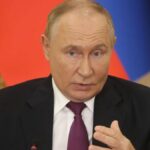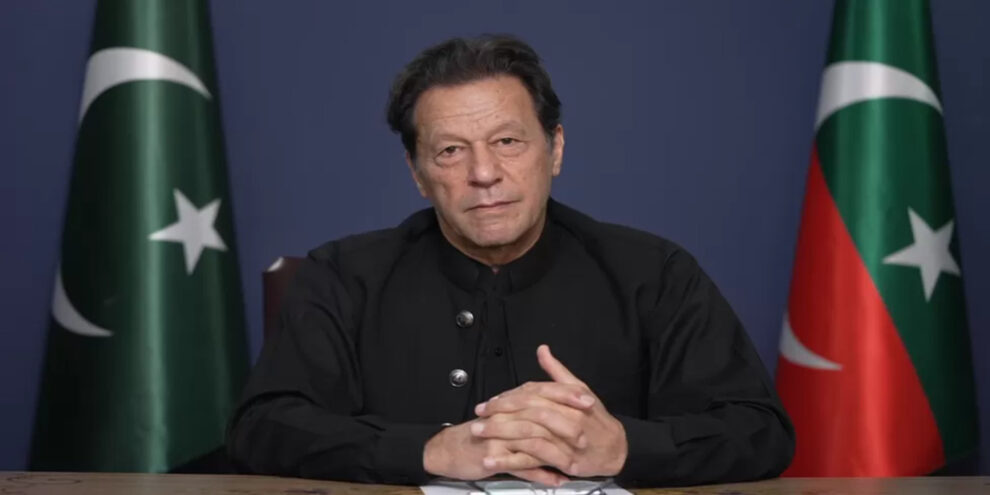Pakistan’s former prime minister Imran Khan has told BBC HARDtalk the military is petrified of an election, which is expected to take place later this year.
He said Pakistan was under “undeclared martial law” and alleged “fascists” were leading it into the “dark ages”.
Mr Khan was elected in 2018, ruled for just under four years, and was then ousted in a parliamentary no-confidence vote last year.
He said only free and fair elections would restore stability.
HARDtalk presenter Stephen Sackur asked the former Prime Minister if his current criticism of the military “meddling” in politics had arisen only since his relationship with the military cooled.
Mr Khan denied this, insisting his Pakistan Tehreek-e-Insaf (PTI) is “the only party that was not created by military dictators”. He alleges that this is why there has been a campaign to dismantle it.
Many critics argue that Mr Khan had the backing of the army during his rise to power, an allegation both sides reject. The military has heavily influenced Pakistan for most of its existence and is a crucial behind-the-scenes player in the country’s politics.
In the last few months, the PTI has seen significant defections, and arrests of key members. But Mr Khan insists it is intact.
“How come, despite the establishment openly going against us, trying to dismantle us, how come after we are out of government, we won 30 out of 37 by-elections?”
He said the establishment had hoped that his removal from power would weaken his party. “Normally, it happens when you’re out of power for quite a while. But instead, what happened was the party’s popularity kept growing,” Mr Khan said.
“They have tried everything. They have put 10,000 people in jail, including women and peaceful protesters.”
Mr Khan’s supporters have viewed him as a political outsider since the former Pakistan cricket captain founded his party 27 years ago.
He says he faces almost 200 charges including sedition, terrorism and abetting murder which he said has seen him shuttling between his tightly guarded home and the courts.
Source : BBC















